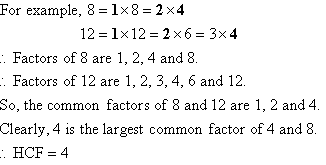Dear all, as explained in the last post (http://sscprep.blogspot.in/2012/09/economics-basics-part-2-rupee-vs-dollar.html) the fluctuation of currency with respect to foreign currency has deep and profound effect on the economy of a country. I would explain it by certain recent examples as we experienced.
Appreciation of Home Currency Against Foreign Currency
Now, as you know appreciation causes the currency to be dearer and expensive. If home currency in our case its rupee appreciates against foreign say dollar then what would it have effect on two important entities:
Let current dollar price is 1$=50 rupees
1. On exporters: Exporters export their lot in dollars. Say I export 1 kg of my material at 1$. I am earning 50 rupees after selling my lot. Now say rupee appreciates against dollar thus 1 dollar would buy less rupee. Say now 1$ = Rs45 after appreciation of rupee. If I sell my lot after appreciation of rupee I am losing 5 Rs. had it not appreciated. And thus my profit margin has decreased if I incur same amount of cost in procuring that material.
Thus, appreciation of currency causes loss to exporters. Thus appreciation of rupee causes loss to TCS, Infosys that outsource and thus technically export services.
2. On Importers: Importers import their lot and pay money in forign currency generally dollar. Say I am importing 1 Litre of crude oil at 1$. I am paying 50 rupees for a litre. Now if Rupee appreciates then I am paying 45 rupees and not 50. Thus I am saving Rs. 5. This would increase my profit margin if I sell the material in India at same price as before.
Thus, appreciation of currency gives profit to importers.Thus appreciation of rupee gives respite to Oil Marketing companies like IOCL,GAIL etc.
Depreciation of Home
Currency Against Foreign Currency
Now, as you know Depreciation causes the currency to become cheaper. If
home currency in our case its rupee depreciates against foreign say dollar then
what would it have effect on two important entities:
Let current dollar price is 1$=50 rupees
1. On exporters: Exporters export their lot in dollars. Say I export 1
kg of my material at 1$. I am earning 50 rupees after selling my lot. Now say
rupee depreciates against dollar that is becomes cheaper and thus 1 dollar
would buy more rupee. Say now 1$ = Rs55 after depreciation of rupee. If I
sell my lot after Depreciation of rupee I am gaining 5 Rs. And thus my profit
margin has increased if I incur same amount of cost in procuring that material.
Thus, depreciation of currency benefits exporters. Thus Depreciation of
rupee causes benefit to TCS, Infosys that outsource and thus technically export
services.
2. On Importers: Importers import their lot and pay money in foreign
currency generally dollar. Say I am importing 1 Litre of crude oil at 1$. I am
paying 50 rupees for a litre. Now if Rupee depreciates then I am paying 55
rupees and not 50. Thus I am losing Rs. 5. This would decrease my profit margin
if I sell the material in India at same price as before.
Thus, Depreciation of currency makes losses to importers. Thus, depreciation
of rupee gives troubles to Oil Marketing companies like IOCL,GAIL etc.
This explains even when the price of crude oil was decreasing still the oil companies were making loss as they were selling oil at subsidized rates but giving more money in terms of rupee thus making losses.





